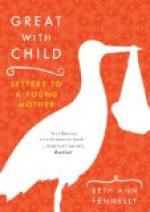The intellectual evil resulting from the use of confectionary consists in the fondness for excitement which is produced. You will seldom find a person who depends daily and almost hourly on some excitement to his appetite and stomach, and is not satisfied with plain food, who will content himself to study without unnatural excitements of the mind. Duty to himself or to others will not move him. He must have before him the hope of reward, or the fear of punishment. He must be moved by emulation or ambition, or some other questionable or wicked motive or passion.
But the moral results, to the young, of using confectionary, are still more dreadful. I do not here refer to the danger of meeting with bad company at the shops themselves, or of going from these places of pollution directly to the grog-shop, the gambling-house, or the brothel; though there is danger enough, even here. But I allude to the tendency which a habit of not resting satisfied with plain food, but of depending on exciting things, has, to make us dissatisfied with plain moral enjoyments—the society of friends, and the quiet discharge of our duty to God and our neighbor. Just in proportion as we gratify our propensity for excitement at the confectioner’s shop, just in the same proportion do we expose ourselves to the, danger of yielding to temptation, should other gratifications present themselves. The young of both sexes who are in the use of confectionary, are on the high road to gluttony, drunkenness, or debauchery; perhaps to all three. I do not say they will certainly arrive there, for circumstances not quite miraculous may pluck them as “brands from the burning;” but I do not hesitate to say that such is the inevitable tendency; and I call on every mother and teacher who reads this section, to beware of confectionaries, and see, if possible, that the young never set foot in them. They are a road through which thousands pass to the chamber of death—death to the immortal spirit, as well as to the body, its vehicle.
More might be added—for this is an important subject—but I trust I have said enough. Those who have read and believe what I have written, if they remain wholly unaffected and unmoved, would not be roused to effort were anything to be added.
SEC. 12. Pastry.
Dr. Paris, a distinguished British writer on diet, says that all pastry is “an abomination.” And yet, go where we will, we find it often on the table. Hardly any one, whether old or young, attempts to do without it.
There are indeed some, who will not eat pie-crust, or high-seasoned cakes formed of paste; but yet will not hesitate to eat hot bread, or rolls, or biscuits made of wheat flour, bolted. Now what is this but paste? If we could see the contents of the stomach, an hour after the mass is swallowed, we should find it to be paste, and mere paste.
And yet the evil is increasing everywhere. So generally is this true, that a person who refuses to eat hot bread, or cake, or biscuit, is deemed singular. He who ventures to lift his voice against it is deemed an ascetic or a visionary. But such a voice must be raised, and heard, too, whether its monitions are or are not regarded.




